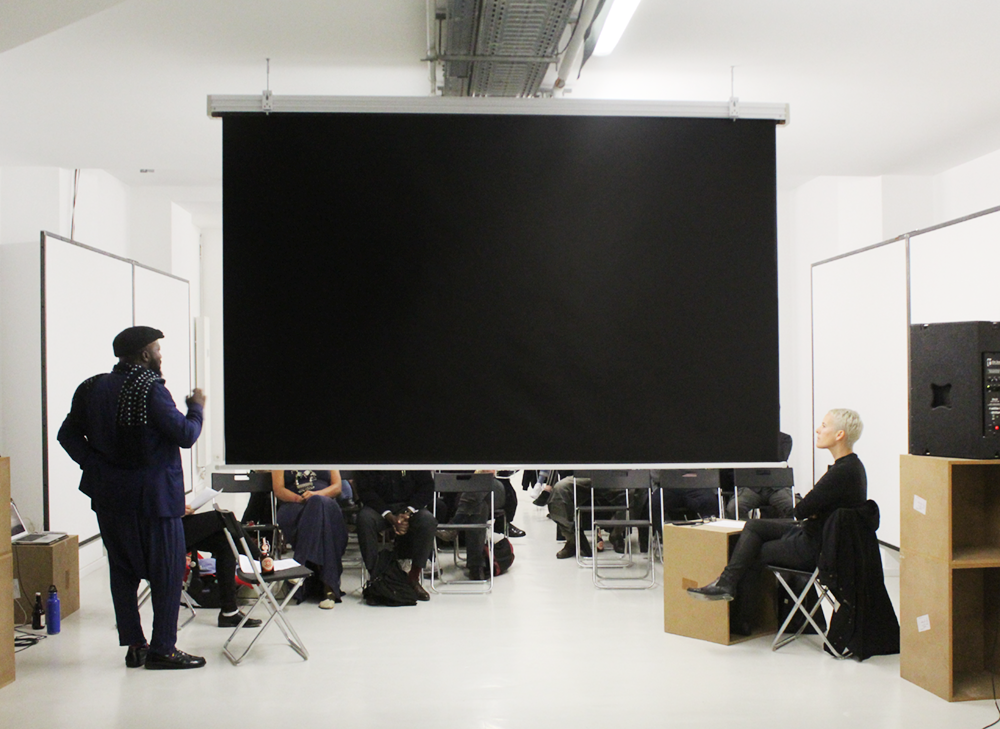Oil Files
How does the world breathe now?
Session N°34 06.09.2017 19:00
With Ana Alenso
Film various
by various
Language N/A
For our 34th screening Ana Alenso presents Oil Files, a compilation of 7 video-art works of Venezuelan artists from 1968 to 2016.
The selection focuses on the relationship between oil production and Venezuelan culture, especially as it relates to structural problems of social inequality and corruption, seeking to give the audience insight into Venezuela’s contemporary history and its current deep-scale crisis.
Part I Pozo Muerto (1968) by Carlos Rebolledo
Part II Black Gold Fire (2015) by Rolando Peña, Tropical curse (2015) by Ana Alenso, Prototipo de vivienda en país petrolero (2004) by Alexander Apóstol, Panorama Miraflores (2014) by Iván Candeo, The dogs keep barking (2016) by Erika Ordosgoitti, Reconversión (2008) by Marco Montiel-Soto.
The event will conclude with an open discussion with the Venezuelan artists Ana Alenso and Marco Montiel-Soto, the Doctor in Latin American Studies Manuel Silva Ferrer, and writer Alberto Morreo.
First, we will show the short film Pozo Muerto (1968, 30 minutes long), directed by Carlos Rebolledo, and produced in collaboration with the Venezuelan avant-garde literary and artistic group El Techo de La Ballena. This raw narrative, or “crude history,” of three residents of a town transformed by the discovery of an oil well in 1922 is set amidst black and white landscapes. It presents the drama of a population abandoned in the ruins of a recent past, a period once described as a bonanza, when foreign oil companies promised prosperous economic futures.
The second part (40 minutes long) brings together the work of six contemporary artists. The video Black Gold Fire (2015) by Rolando Peña, otherwise well known as The Black Prince, zooms out a focus on Venezuela and recognizes Oil in its most universal sense, as an object of scientific inquiry and a symbol of wealth and power. Ana Alenso’s Tropical Curse (2015) presents a collage of found and archive images, where social and political economical phenomena juxtapose the brutal fact that the world’s largest oil reserves exist alongside the highest rates of murder and poverty.
Prototipo de vivienda en país petrolero (2004), by Alexander Apóstol, follows. A plaza in the city center has a monument dedicated in 1975 to Oil, the year of the nationalization of Venezuelan oil. By the year 2004 it had become a shelter for the homeless, where peasants and beggars build their “rancho,” shelters under the rocker of the oil’s monument. Oil and slums, gather here to be represented under the same monument.
The political repression and persecution to diverse sectors who oppose the government has been brutal, with over more than 600 political prisoners and more than 120 people killed in these last four months during protests. The abuse of force has been documented and has gained international visibility surpassing different media state control and censorship.
In the current social and political crisis, the video Panorama de Miraflores (2014) by Iván Candeo commands us to observe vigilantly the building belonging to the Presidential Guard of the Miraflores Palace, where a certain “tense calm” reigns mixed with state paranoia, and a general uncertainty typical of the events surrounding a state coup.
Venezuela has recently registered the highest record of inflation of not only its own economic history but of the entire region. Marco Montiel Soto’s Reconversion (2008) and Erika Ordoisgoitti’s The dogs keep barking (2016) confront us with the financial terrain of the crisis, approaching money directly. Each artist manipulates the material trappings of value, interrogating the increase of inflation, the symbolic violence inherent to it, and its impact on the collective body.
Ana Alenso is a Venezuelan artist based in Berlin, Germany. Working across sculpture, photography, installation, sound, and video, her current work aims to expose the dire risks in the global oil industry and financial world. Through the use of industrial materials, her work identifies critical states–situations of precariousness and tension–in a poetic register. She holds an MFA in Art in Context from the Berlin University of Arts (2015), an MFA in Media Art & Design at the Bauhaus University Weimar (2012) and a Diploma from Armando Reveron Arts University in Venezuela (2004).

